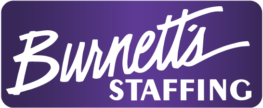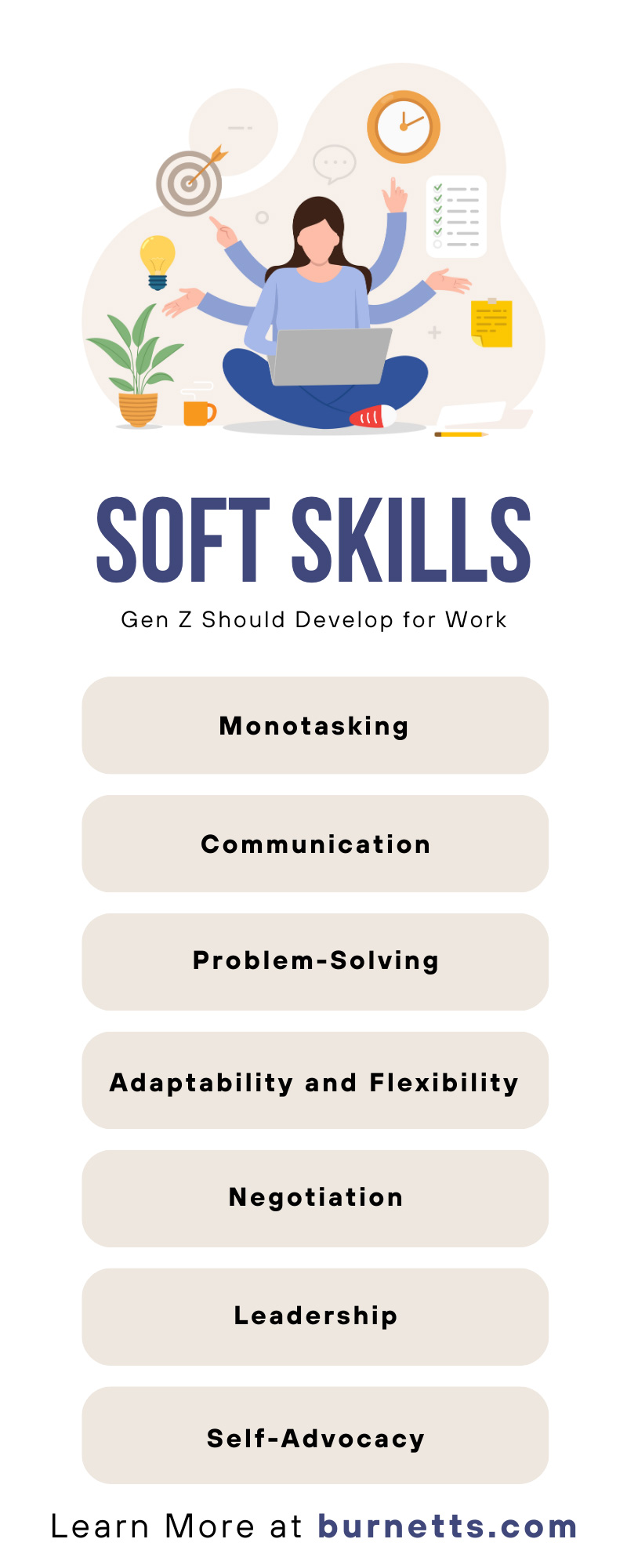
As Generation Z enters the workforce, these young professionals must equip themselves with the right skills to thrive in their careers. While complex and technical skills are crucial, soft skills—the interpersonal skills that characterize a person’s relationships with others—can be the deciding factor in succeeding in a job. This article delves into essential soft skills Gen Z should develop for work.
What Are Soft Skills?
Before we get into the specific soft skills, let’s define them. Soft skills refer to a person’s ability to interact and communicate effectively with others, adapt to new situations, work well in a team, and handle challenges and conflicts. These are essential qualities that employers look for in their employees, as they contribute to a positive work environment and can ultimately lead to a company’s success.
7 Essential Soft Skills
Every job seeker should possess a range of soft skills, as they can set them apart from other candidates. As members of Gen Z continue to enter the career field, individuals should focus on developing transferable skills. Some of the most desired soft skills include the following:
- Monotasking
- Communication
- Problem-solving
- Adaptability and flexibility
- Negotiation
- Leadership
- Self-advocacy
By honing these skills, Gen Z can distinguish themselves in the workforce and demonstrate their value to potential employers.
Monotasking
Many of us celebrate multitasking in today’s world, so much so that we overlook monotasking. Unlike focusing on several tasks at once, monotasking requires you to fully concentrate on a single task at a time. In doing this, you enhance your work’s quality and reduce the likelihood of errors.
To develop this skill, consider strategies like blocking off dedicated time for specific tasks, minimizing distractions, and practicing mindfulness.
Communication
Most members of Gen Z perfected the art of digital communication during the COVID-19 pandemic, as education went remote. While many businesses offer remote work, some are hybrid or in-office, which requires in-person communication.
Develop your communication skills by actively listening, asking clarifying questions, and being aware of nonverbal cues. Regularly engaging in team projects, participating in public speaking events, and seeking feedback on your communication style are excellent ways to hone these skills.
Problem-Solving
Employers want individuals who can think critically and creatively to solve complex issues that may arise. Gen Zers should focus on developing this skill by searching for opportunities to brainstorm, approach problems from different angles, and find solutions rather than waiting for someone else to do it.
Enhance your problem-solving skills by breaking down problems into smaller parts, collaborating with others to find solutions, and seeking feedback on your problem-solving strategies.
Adaptability and Flexibility
Adaptability goes hand-in-hand with other soft skills, such as communication and problem-solving. The quicker you can mold and adjust to new situations, the more successful you will be in your career. Likewise, flexible individuals have an easier time thinking of new solutions or making a mental pivot when faced with challenges at work.
Most professionals recommend improving on this skill by embracing change. Readily take on new challenges with an open mind and consider all constructive criticism that others have to offer. While it may be uncomfortable initially, the more you practice adaptability and flexibility, the easier it will become.
Negotiation
Negotiation is another soft skill Gen Z should develop for work, as it can influence your career trajectory significantly. Whether it’s negotiating a salary, a project deadline, or a business deal, effective negotiation can help you achieve your goals without compromising relationships.
You can improve your negotiation skills by researching and preparing for these conversations. Likewise, aim to actively listen so that you can find mutually beneficial solutions.
A Bonus
Possessing this skill also helps you stand out during interviews since it demonstrates your confidence and assertiveness. For example, you may negotiate a higher salary or additional benefits before accepting a job offer.
Leadership
Leadership isn’t just about leading teams or managing projects; it’s about inspiring and motivating others, making decisions, and taking responsibility. Although you may not be in a leadership position, demonstrating these qualities can set you apart and open up growth opportunities.
The best way to become a leader is by taking on leadership roles in extracurricular activities or attending volunteering events. Taking charge isn’t always easy, but if you practice regularly, it will become more natural.
Self-Advocacy
Standing up for your rights, expressing your needs and concerns, and making informed decisions are crucial to receiving fair treatment and opportunities. Doing this can feel stressful, and some individuals who are new to the workforce avoid it altogether. The problem is that neglecting self-advocacy increases the risk of missed opportunities.
Becoming a self-advocate is crucial in the workplace and your personal life. You’ll become a better self-advocate by setting personal boundaries, regularly practicing self-reflection, and seeking resources and support when needed.
How To Acquire Soft Skills
While some people may naturally excel in certain soft skills, the good news is that anyone can develop and improve them. Some ways to work on soft skills include:
- Seeking out mentors
- Actively seeking feedback
- Enrolling in workshops
Transforming your “weaknesses” into strengths takes time and effort, but the payoff is worth it. You can even explain this during an interview. When asked about your areas of improvement, you can mention the specific soft skill and share how you’re actively working to enhance it. Employers like hearing this because it shows you’re self-aware and strive toward self-improvement.
Seek Out Mentors
Mentors can provide valuable guidance, support, and feedback as you work on developing your soft skills. Look for individuals in your field or network who possess the traits you want to improve and ask if they would be willing to mentor you. This can also expand your professional network.
Actively Request Feedback
Feedback is an invaluable tool for personal growth and development. When striving to improve specific soft skills, consider contacting your colleagues, supervisors, or mentors for their valuable insights and suggestions.
Enroll in Workshops
Many organizations in the corporate and educational sectors recognize the importance of soft skills and actively offer workshops or classes dedicated to their development. These specialized programs provide individuals with invaluable opportunities to learn from industry experts, gain insights, and acquire practical knowledge.
Contact Us
As a staff recruitment agency, Burnett’s Staffing can help businesses track down the best job candidates. We partner closely with employers and job seekers to find the perfect fit for both.

